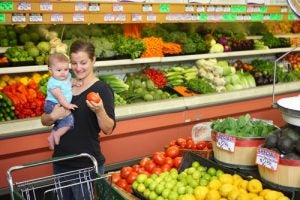I recently participated on a panel discussion with a provocative title: “Elite Food Consumers: A Force for Environmental Good?” The panel was moderated by The Washington Post columnist Tamar Haspel and organized by the Breakthrough Institute.
It was a great discussion because there is no doubt that consumer preferences are changing food – and not just for elite consumers. Even the larger and more affordable food retailers are responding to new consumer demands for how food is produced, what ingredients it contains and how products are marketed. But consumer choices alone won’t reshape the food system.
Minimizing the environmental footprint of agriculture – in ways that don’t hurt farmers’ profitability or consumers’ pocketbooks – will require additional levers. Read More












 The corn and soybean fields that stretch for miles across the Midwest are quiet this time of year, mostly frozen surfaces waiting for the spring planting season.
The corn and soybean fields that stretch for miles across the Midwest are quiet this time of year, mostly frozen surfaces waiting for the spring planting season.
